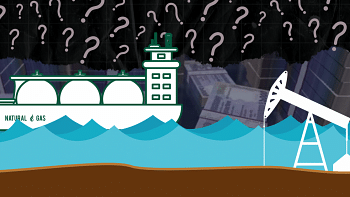Resuming gas exploration is the need of the hour

At this point, Bangladesh's approach to ensuring energy security for the citizens is a lesson in what not to do. The chronic dependence on liquefied natural gas (LNG) imports, coupled with depleting gas reserves, is holding the economy hostage to a perennial energy crisis. Only 21 out of the 29 gas fields are currently operational, resulting in the 60 gas-fired power plants or so receiving just about 55 percent of their needs, according to a report by this daily. As of now, only one third of the onshore area of Bangladesh has been explored for gas – making it one of the least explored nations in the world – even though its success of discovering gas has been way above the world average.
Instead of changing the current policy that has been causing energy poverty for us, two additional contracts to import LNG from Qatar and Oman have been signed. It is no secret that increasing the dependency on LNG imports not only threatens the stability of our exchequer but also leaves us at the mercy of other nations in a volatile geo-political climate. Last year, against the backdrop of the Russia-Ukraine war, the price hike in the LNG market led to a disastrous situation. So, why are we still using the same recipe for disaster? That is the most pressing question that the government must ask itself, as they mark the National Energy Security Day with the theme "Energy savings: the oath of smart Bangladesh."
In March, the state minister for power, energy and mineral resources said that Bangladesh does not have much unexplored gas and that this is why we need to import LNG. However, several studies by internationally reputable organisations have shown that there is more gas underground than what has been extracted. If that is true, what's stopping the government then?
Local gas production has been declining since 2016 and if it is left this way, existing reserves will be exhausted in nine to 10 years, experts warn. This is a situation that we must strive to avoid. The solution is not unknown: exploring and lifting gas from below the ground may significantly boost gas production, meet our energy demands, and also lead to more stable prices. We, therefore, urge the authorities to execute a proper domestic gas exploration programme to prevent further deterioration of the current crisis, and put an end to citizens' sufferings.


 For all latest news, follow The Daily Star's Google News channel.
For all latest news, follow The Daily Star's Google News channel. 









Comments